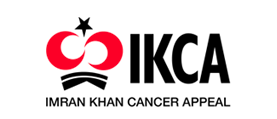“Here, we tell patients whatever the reality of their case is. While being a critical care patient does not always mean the worst, we also never give fake hope.”
ICU nursing is a highly specialized field, where patients who are critically ill need to be monitored 24/7. But ICU nursing involves much more than just patient care. Asim is a male nurse at SKMCH Lahore’s Intensive Care Unit (ICU). He tells us about his work, and the hardest thing he has to face on the job.
“ICU care demands a specialized kind of nursing; we have to educate our patients too. We tell them exactly what medication we will be giving them, and what kind of machines, leads, multiple wires, and IVs we are attaching to them. Medical devices can feel very alien to them and make them tense. So we always explain and assure them that this is being done for their care.”
“Part of being an ICU nurse is also educating patients about the ICU environment; the different sights and sounds of machines in the unit. This is often a noisy place with the pumps and alarms that go off. All of this can be overwhelming for patients, so we try to put them at ease.”
“We also tell patients the reason why they have been brought to the ICU, and assure them that they are in safe hands. We are always hones about a patient’s situation. While being a critical care patient does not always mean the worst, we do not ever give fake hope. Often, we have to give counselling to patients as well. If it is a matter that is out of our hands we then bring in psychologists.”
“When we know a patient is not getting better, our consultants, residents, and nurses meet with the patient’s family and explain the prognosis. Often, in such cases, it is due to multiple organ failure. It is especially hard when we have to do this in the case of a child patient −it takes a toll on even the strongest of us”
The ICU at SKMCH Lahore is has state-of-the-art medical equipment. The ventilators, infusion pumps, syringe pumps and monitors here, are of the kind not available at many other hospitals in Pakistan. They are used for the purpose of providing care and treatment cancer patients, 70% of whom hail from extremely poor backgrounds. 21 years on, this is still nothing short of a miracle in Pakistan. Your support is what makes it possible.
